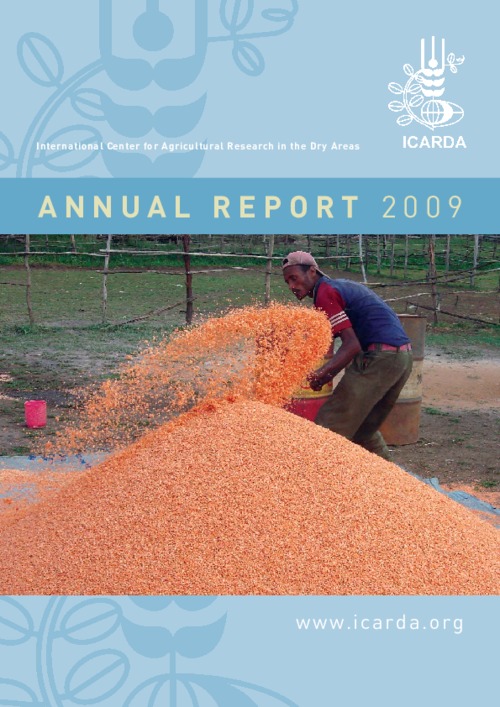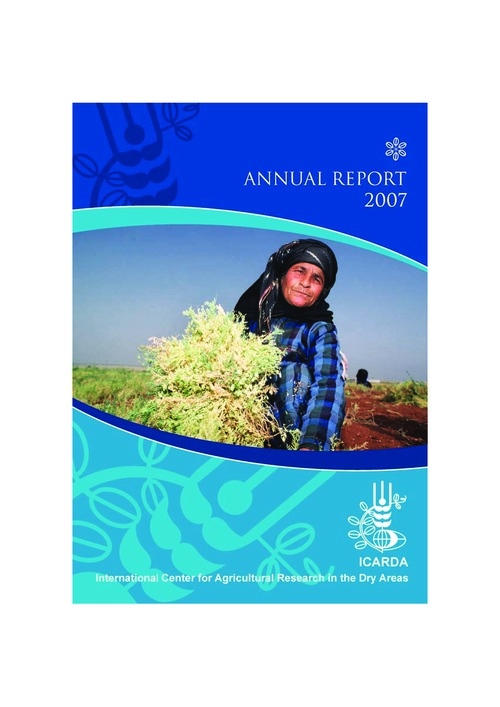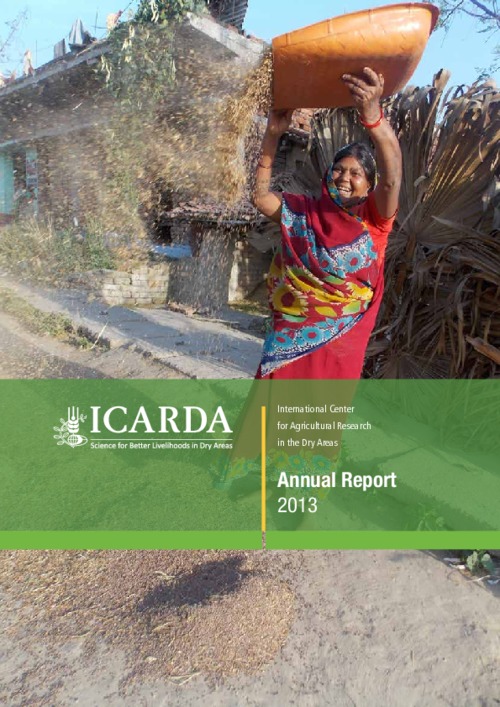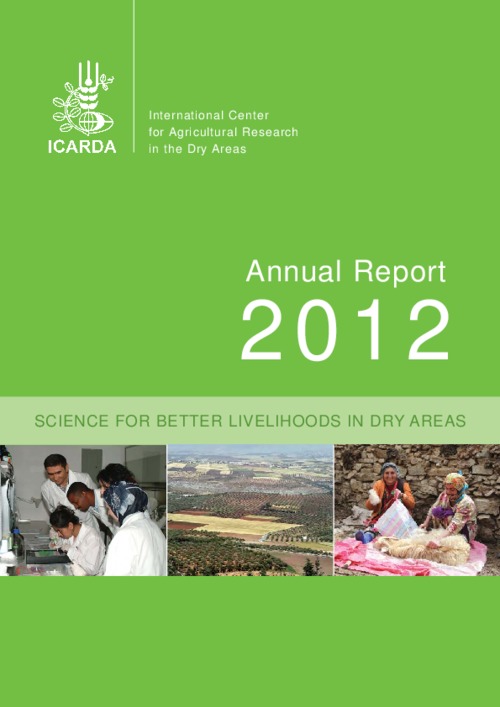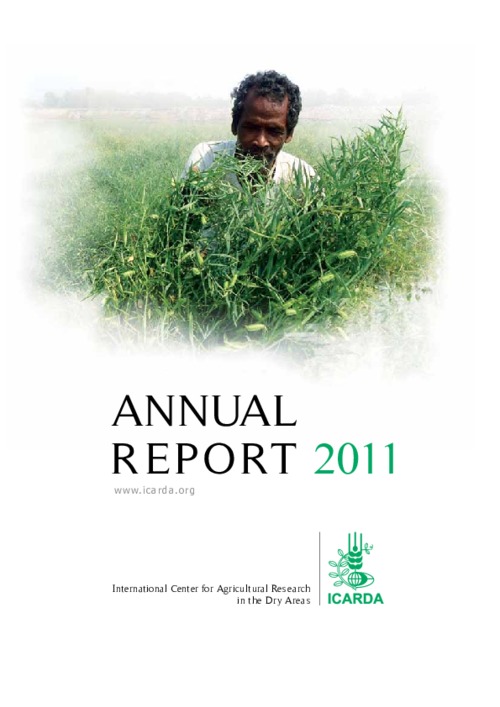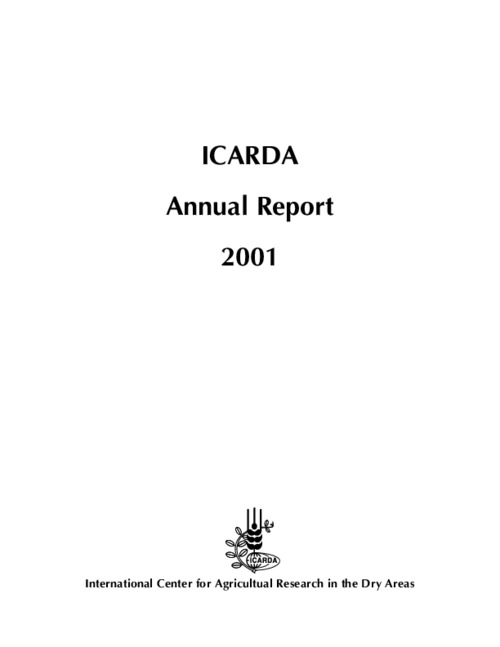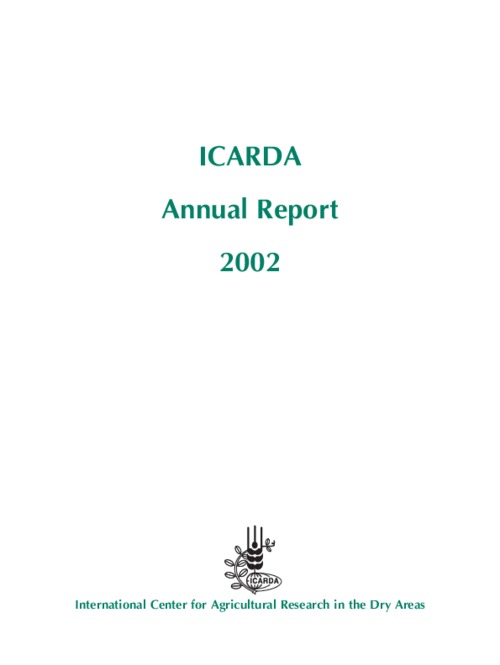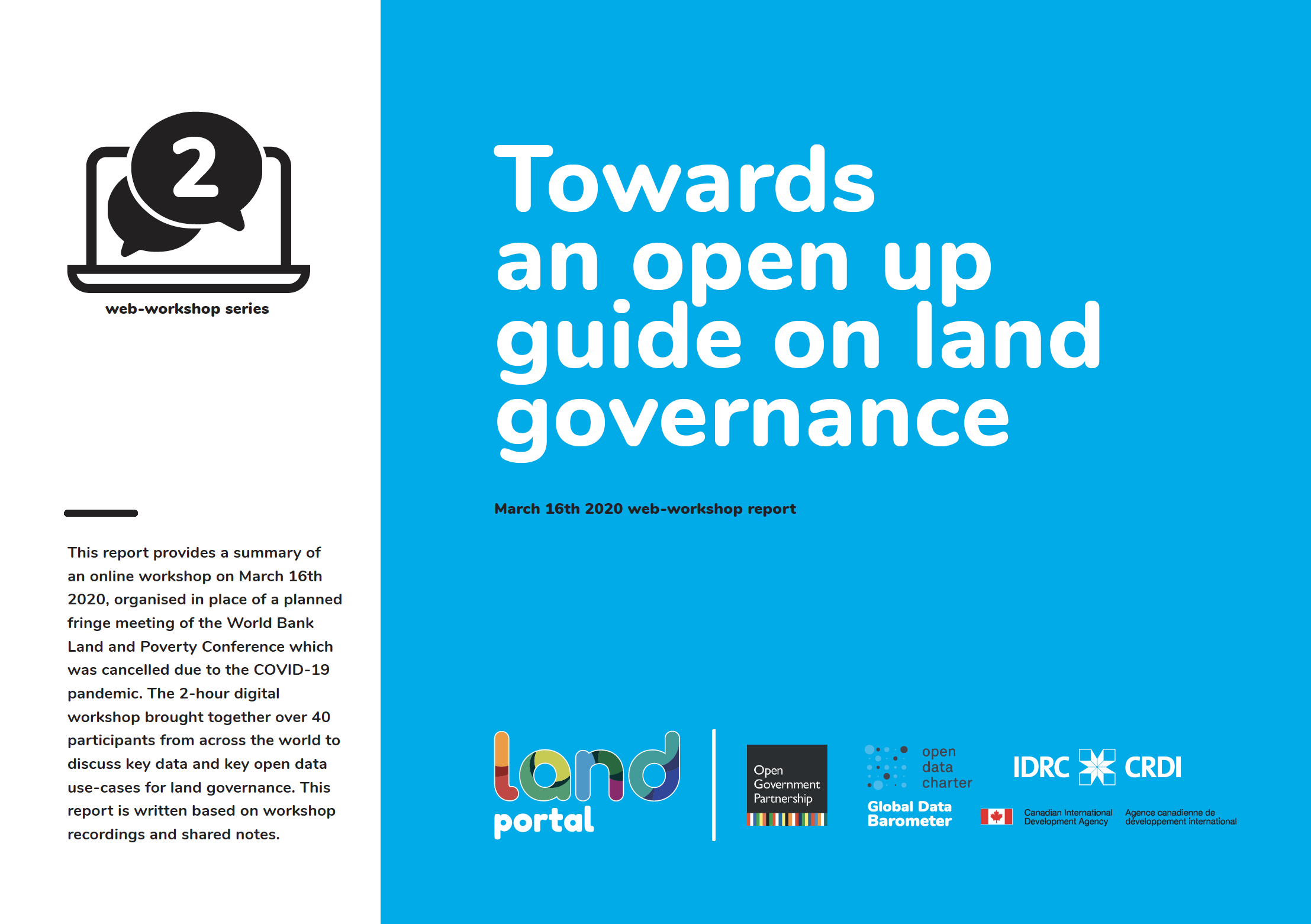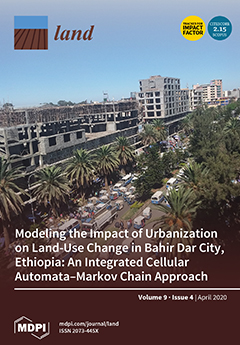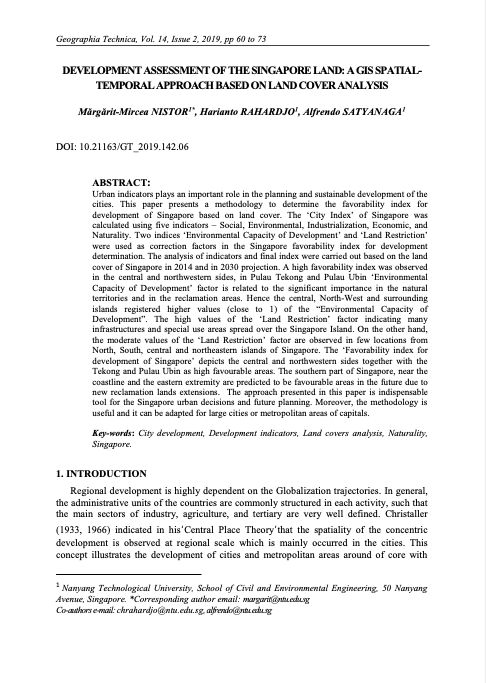ICARDA Annual Report 2009
The dry areas face severe challenges to sustainable development. The biggest challenges – food insecurity, water scarcity, land degradation, and climate change – are closely inter-related. The effects of climate change will be felt globally, but the dry areas will be particularly hard hit. Climate change will exacerbate water scarcity, rainfall variability, and the decline in the natural resource base, and thus could have a profound impact on food security.

